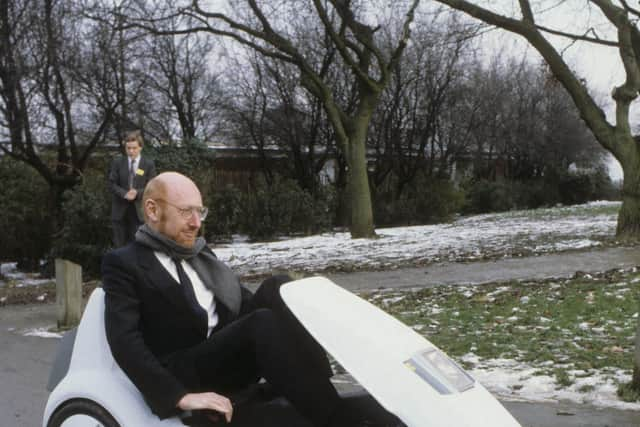How Sir Clive Sinclair's legacy can inspire a new generation - Andrew Lupton
And reading his obituaries in several publications, including in The Yorkshire Post, it was clear he was not only highly driven from an early age, but also had a strong conviction that his inventions could and would revolutionise the computing industry, which to anyone growing up in the 1980s they certainly did.
But what sets the likes of Sir Clive apart from the rest of us and makes them pioneers in their individual fields? What was it that gave him his entrepreneurial spirit and drive? Was it in his genes – after all, both his father and grandfather were engineers.
Advertisement
Hide AdAdvertisement
Hide AdMy father could also be considered a pioneer. He too was an engineer, had an entrepreneurial flare and liked inventing things, in his case agricultural machinery which in turn paved the way for the gritters, snow ploughs and highways maintenance vehicles that come off our Ripon production line on a daily basis.


Recently, we hosted a party of Lower Sixth Formers from Ripon Grammar School. These 17-year-olds are all studying STEM (Science, Technology, Engineering and Maths) subjects, and they took a tour of our engineering facility on International Women In Engineering Day. It was probably the first time that they had visited a ‘factory’; with the aim of giving them a brief insight of life beyond the classroom.
These young women may well become the next generation of Sir Clive Sinclairs, but in order for this to happen, they and their peers not only need to be ‘inspired’, they need to be prepared for the reality of the workplace. In recent years, some of the school leavers that have come through our doors have been totally unprepared for the rigours of working life. And speaking to colleagues in other businesses this isn’t unique to us.
These young people might be prepared for a reality TV show, but they certainly haven’t been prepared for a hands-on role in an industry like ours – in my mind this is where the education system needs to step up to the mark.
Advertisement
Hide AdAdvertisement
Hide AdWhat I, and other employers need, is a broad range of employees with a strong work ethic, ones who want to learn a skill and earn whilst they are learning. Businesses need to be working in partnership with local schools and colleges to help shape and prepare our future workforce, one that is better and broader skilled, and one that can help take our great manufacturing heritage to the next level.
We need to get young people excited about work and employment opportunities at an earlier age. Work placements and work experience are two examples, but we need businesses willing to engage in the process and offer one or two weeks’ experience a year to Year 11 pupils who have just sat their GCSEs.
And that experience good or bad will help them make their A-Level choices. On the flipside, it might make them look in another direction but whatever the outcome, it will give them a flavour of life beyond the classroom and that can’t be a bad thing.
By Andrew Lupton - Econ Engineering Director
Comment Guidelines
National World encourages reader discussion on our stories. User feedback, insights and back-and-forth exchanges add a rich layer of context to reporting. Please review our Community Guidelines before commenting.